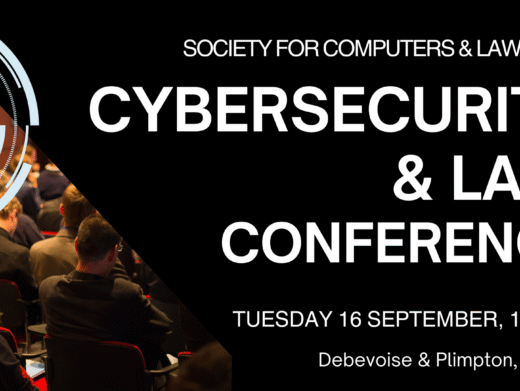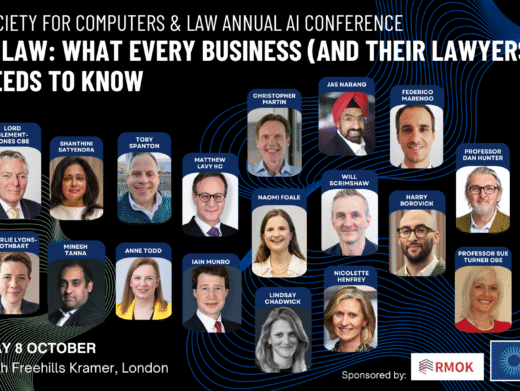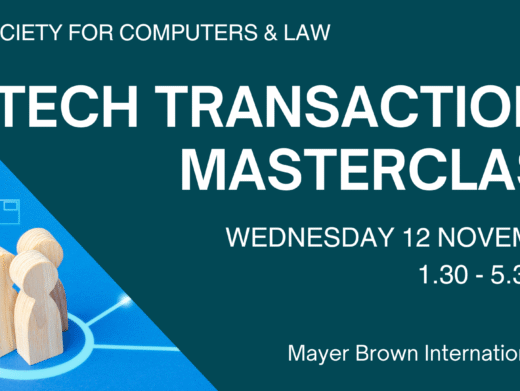Imagine this. The World Wide Web becomes so important as a medium of human expression that interfaces to it emerge everywhere. In your car. In your mobile phone. On your fridge. Tim Berners-Lee, inventor of the Web, sees a future where the Internet can be accessed through a device similar to a piece of A4-sized paper. Malleable enough to be rolled up and put in your pocket. Opaque enough to work in strong sunlight. Powerful enough to give wireless super-fast connectivity to the Web and a touch-sensitive interface that doesn’t need a mouse. Why stick it on your refrigerator? Where else in the average home acts as the centre for information. I have shopping lists, garbage and college timetables and a local cinema guide on mine. Why not replace all that with the entire Web.
Before Microsoft discovered the Internet, Bill Gates saw a world controlled by its Windows operating system. Windows2000 Lawnmower Edition would control garden devices and alleviate the need to spend out on a weekly visit from the gardener. Some hope. But Tim B-L may have a point about the Web. Nokia have had a combined mobile phone/browser for some while. It may be slow now, but not for long. A global network of satellites has made possible in-car navigation systems that inform of traffic delays ahead and provide alternative routes, with full colour maps along the way. The GPS system is so accurate that your exact location can be calculated to within a few metres. And there is world-wide coverage, even in Croydon. So you really will be able to get to the Web from anywhere; it will be sub-ether communication medium of the 21st century – á la Hitchhiker’s Guide to the Galaxy.
But isn’t speed always going to be a problem? Technologists predict that the limits of Internet bandwidth will cease to be an issue within two years. We will have enough available speed potential to accommodate any (yes, any) application we may think of. Anyone who has tried to use video conferencing and seen staccato Max Headroom-like characters animate through their monitors will give thanks.
A chap from British Telecom I was talking to recently put a different spin on things. BT are predicting that Internet traffic will outstrip voice requirements on their network by 2002 at the latest. There will be more telephone calls made for e-mail exchange and Web surfing than just for talking by 2002. This sounds an incredible fact, but bear in mind that IP (Internet Protocol – the format used by the Web) traffic already carries audio and video. Microsoft Internet Explorer allows Net Meetings to be set up between connected parties at the click of a mouse. Just add a fish-eye video camera and microphone to your Web browser and you’re there.
So what about the law? It’s all about getting information where you need it, when you need it. Thin client technology and fast, wireless, digital communications can get it where you want; the Web gets it there around the clock through the increasing number of Web based information services for lawyers. But it’s even better than that. Because the Web has spawned a number of really innovative approaches to turning information into knowledge.
The Internet, as any 12-year-old surfer will tell you, is mainly junk. It’s the 1% of good stuff in between the SUNSET.GIF files and Auntie Josie’s home page that’s important. But how do you get to it? The majority of search techniques use straight text matches. Some use ‘metadata’ embedded in Web pages – descriptive words and phrases that tell search engines about the data in the page. A bit like the catchwords in a law report. One or two engines use a thesaurus to match pages that don’t contain the actual words you have typed but are none the less relevant. But the very best use a completely new technology.
Police forces around the country, the FBI and Butterworths all have something in common. Each use a Neural Network based system developed by a UK-based software house who have used Bayesian mathematics to take the quest for the right answer one stage further. Butterworths have published Halsbury’s Laws electronically for the first time, but rather than just providing a standard word search facility, ‘natural language’ searching is available through a function called Eureka. Each section from Halsbury’s Laws has a ‘concept fingerprint’ produced for it. An enquiry is made of the database by asking a question in the same way as a lawyer might be asked a question: ‘I have noisy neighbours. What can I do?’ The concepts contained within the question are extracted and the nearest matches from Halsbury’s found. They’re ranked and the user is shown the title of each matching section. The more you tell Eureka about the problem, the more relevant the matches returned. There is even a ‘find me more sections like this’ facility.
The really clever thing about the system is that it is language independent. There is no dictionary of words that is searched through. The technique is based on pattern matching within text – the language used is irrelevant. The software works just as well with French data, or Japanese, or Arabic. So long as the question and answer data are in the same language, the system works. It can even work in the background. One UK service provider uses the software to monitor newspaper articles being read by each individual reader. Articles in other sources that are about the same subject are suggested in real time. The Web site appears to be intelligently monitoring what you are doing and helps you along the way by suggesting other pages (articles, database records, documents, precedents) that could be relevant. If you notice that something is a bad match, it can even learn as it is used: I like that article about Clinton in the White House, but not that one about Whitewater.
The police use the system to find correlations between the facts of unsolved cases. Rather than identifying exact matches of words or phrases in texts, the software makes suggestions about possible connections between things. So it works great with large amounts of disparate material, just like that found on the Web. You get a sense that technology is becoming proactive in its efforts to help us do our jobs. We no longer have to give explicit instructions, computers are now able to guess what we want or where we are headed and make the appropriate decisions for us.
So where is the Web going? New wizzo applications alone will not guarantee its survival or continued use in law firms. If the bandwidth and wireless connectivity predictions are correct, I believe the Web will become the ubiquitous method for communications and publishing of the next millennium. Why? Four reasons.
- Firstly, the Internet is increasingly built-in to computer desktops. Buy a PC these days, a modem and AOL or Compuserve account come with it. It’s hard to tell in Windows 98 whether you are accessing your local drive, a network server or the Web.
- Second, intranets are a great idea. They use browser technology to make life easier, systems departments love them and they give the HR people the perfect medium for publishing the staff handbook. But to most users, the artificial barrier between the corporate intranet and the Internet at large is invisible. If a trusted source were allowed to publish external material through the firewall, no-one other than the systems guys would have the slightest idea. The data would appear to be resident on the firm’s internal server.
- Thirdly, publishers and media companies love the Web. Material can be published or broadcast for less effort, more frequently. The obvious security risk downside (pirated music, for instance) is far outweighed by lower distribution costs, ease of use and a single point of failure. Clearly there is an increase in reliance on third parties (the ISP) but even here there are fail-safe fall backs with multiple service providers.
- Finally, Bill Gates wants it to happen.
I don’t subscribe to the view that Gates wants to rule the world, but he certainly has more marketing power in the computing field than anyone else. So if he wants to turn the Web into the sub-ether network that will carry access to his products, he will make it happen. I can see a time in the not-too-distant future, when all software will be distributed over the Internet. Programs could be rented rather than bought. Support will be provided via a video link. No more scratched CD-ROMs or lost floppy disks. In fact I think that all digital media will be distributed in this way. Publishers like Butterworths will distribute all electronic material via wire rather than CD or DVD.
This is the reason why we, and others, are racing to create Internet services and to migrate our CD-ROM user base to the Web. In another three years we will all be using it anyway. If we create services that exploit the power of the Web now, we will be in a stronger position when it is universally accepted in the UK, as it has been in the US. Some firms are already using the medium to do more than advertise their services. Linklaters Blue Flag service gives legal advice in the financial services area in over 100 countries, with no strings attached. They stand by advice given on their Web site in the same way as they would on paper or in person. The Susskind-esque legal world approaches quicker than many predicted
People often ask me if I think that computers (or more accurately CD-ROMs) will replace books. I have been saying no – books are easier to read, don’t break, are more portable, work in the bath, etc. But technology is moving on at such a pace that I’m no longer sure. There are a number of cheap electronic book devices you can buy today. You can locate the text of your choice through an Internet book shop – Barnes & Noble or Amazon.com. You can pay by credit card and download the book to your reading device. All this you can do today. Now combine this possibility with the idea of the ultra thin, flexible screen. A screen that looks like a piece of paper. Research work is currently being carried out into a material covered in millions of microscopic balls, each coloured one half white, one half black. An electrical charge applied to each selects the half of the ball the eye sees, effectively creating a piece of paper with text that can change at will. You could buy some blank pieces the size of a newspaper and download the whole of The Times each day over the Web! Or you could download the laundrette opening hours and stick them on your refrigerator.
Books as we know them will change, but the result will not look like a large calculator. They will look like easier to use versions of the things we use now. Law books in particular can only get simpler. Imagine the whole of the All England Law Reports, Halsbury’s Statutes and Halsbury’s Laws, all instantly searchable and cross-referenced, in one single volume. A volume you could read in bath, take to court, ask real questions of and use to access other parts of the Web as well. I think we have nothing to be afraid of from technology except our ability to exploit it.
Ivan Darby can be contacted at ivan.darby@butterworths.co.uk.




